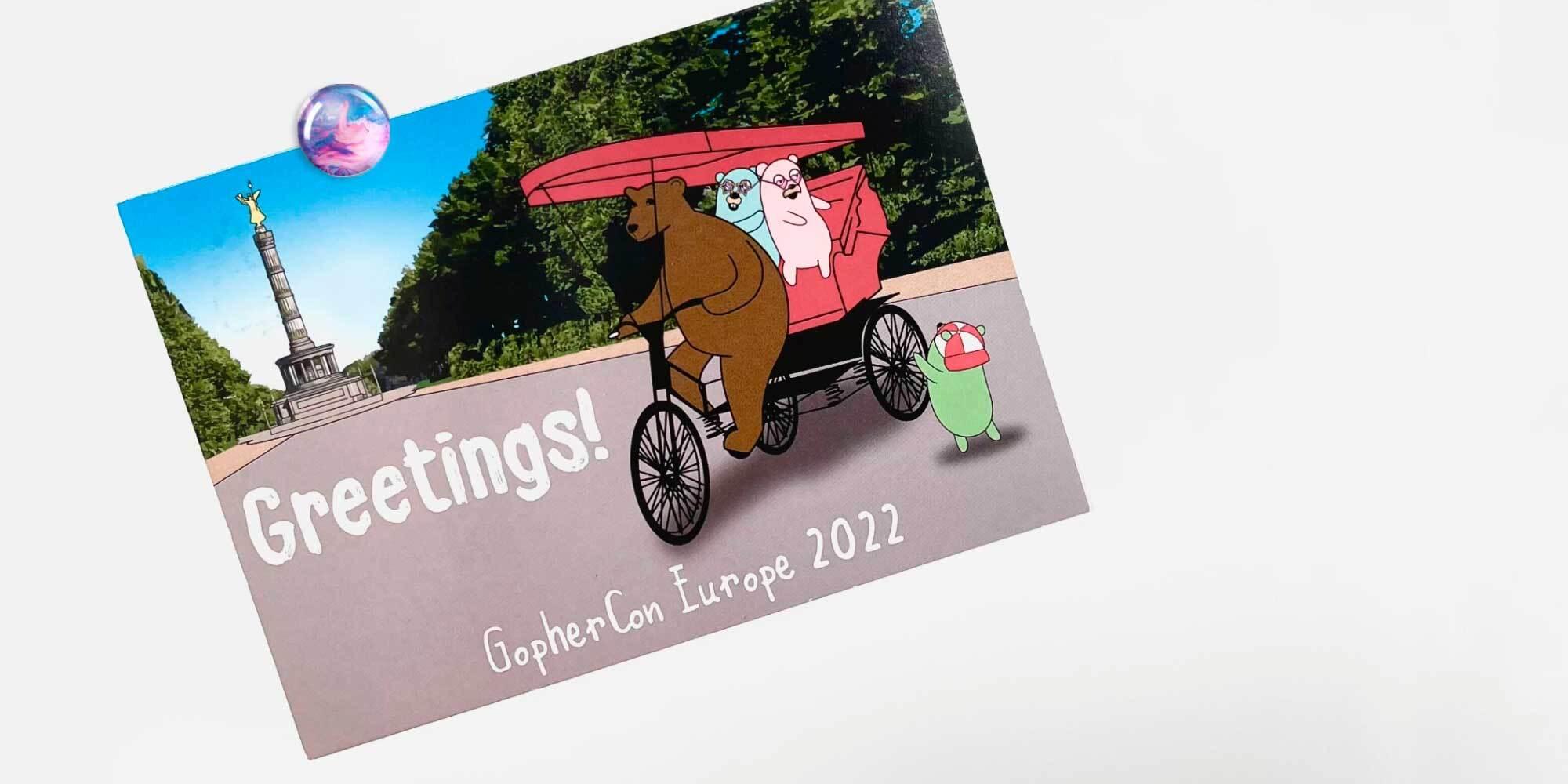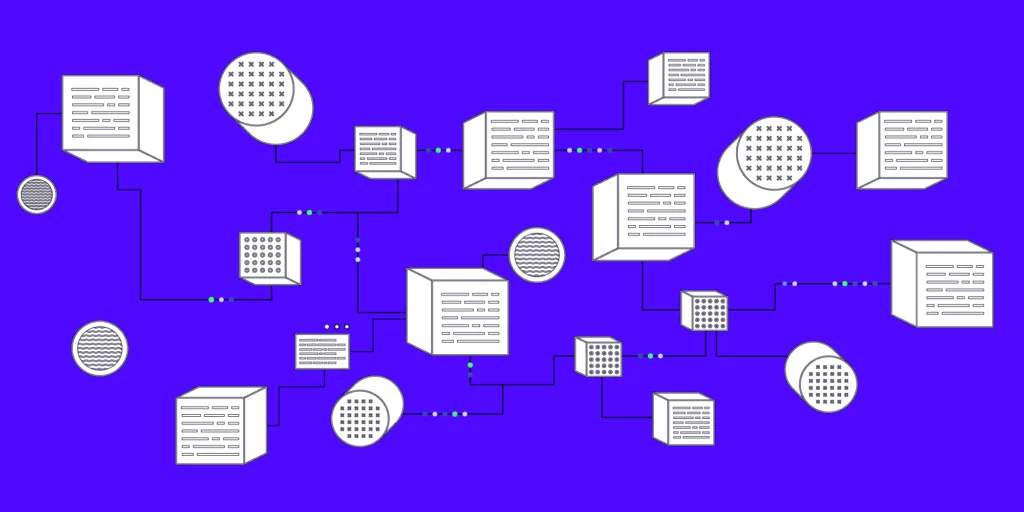Back when it still was warm and the sun shined more than 6 hours a day our software consultant Jimmy represented us at the Gophercon EU 2022. A conference for Go developers and like-minded geeks.
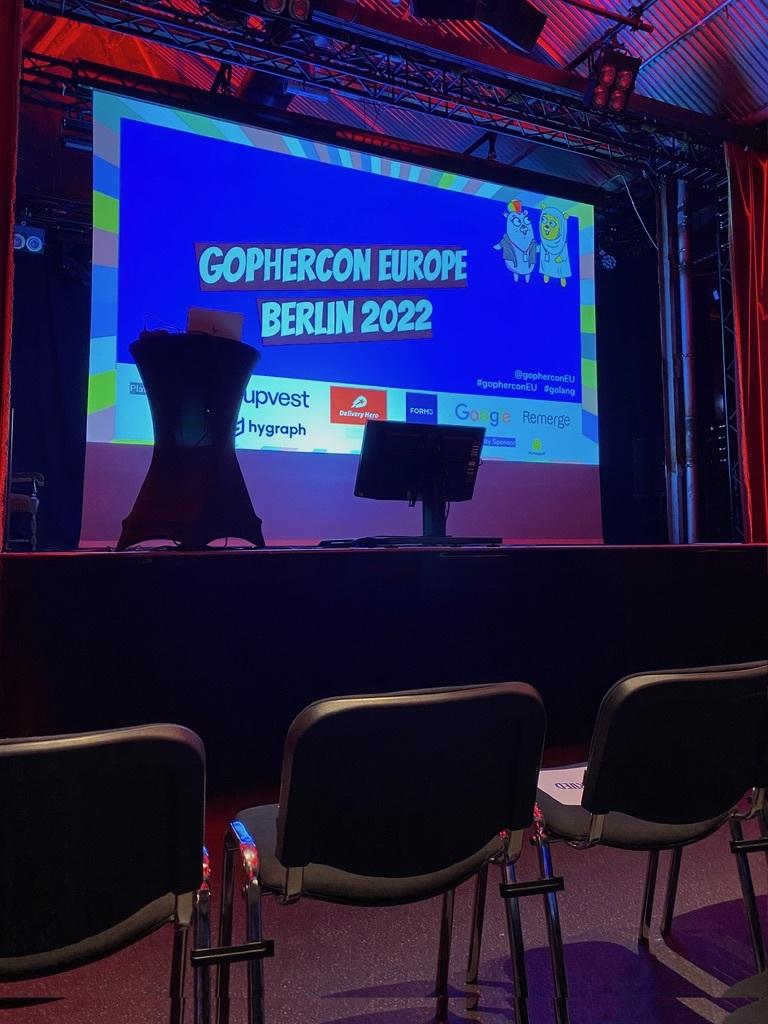
Gophercon EU is a yearly conference around Go (the programming language, not the board game). This year the conference was held in Berlin and lasted for whole four days. The first two days were aimed at people who wanted to dive deeper into a specific topic or wanted to get their hands dirty in a wide arrange of workshops, hacking sessions or just wanting to brag with other gophers why Go is better than Rust. During the last two days, the main event took place with different talks, lightning talks and a panel with the go development team.
Berlin 🇩🇪
Believe it or not, Berlin is big in tech and home to many big companies like Mozilla, Hashcorp and Soundcloud and many more. The venue was located in a Biergarten located in Kreuzberg. Would you expect anything else? The venue seated easily 800 people and had a nice outdoor area where people could relax and drink unlimited fritz-kola during the breaks. The venue is located around 4km from the city centre, but thanks to the awesome public transport pass I could use an unlimited amount of public transport for a mere 9€ during my stay.
Round table discussions 💬
During the first day, there were round table discussions where people could freely jump into different topics depending on what you were interested in.
Topics which I participated in were around testing and asserting in tests, which is a huge part of my dailywork that I currently do at Smartum.
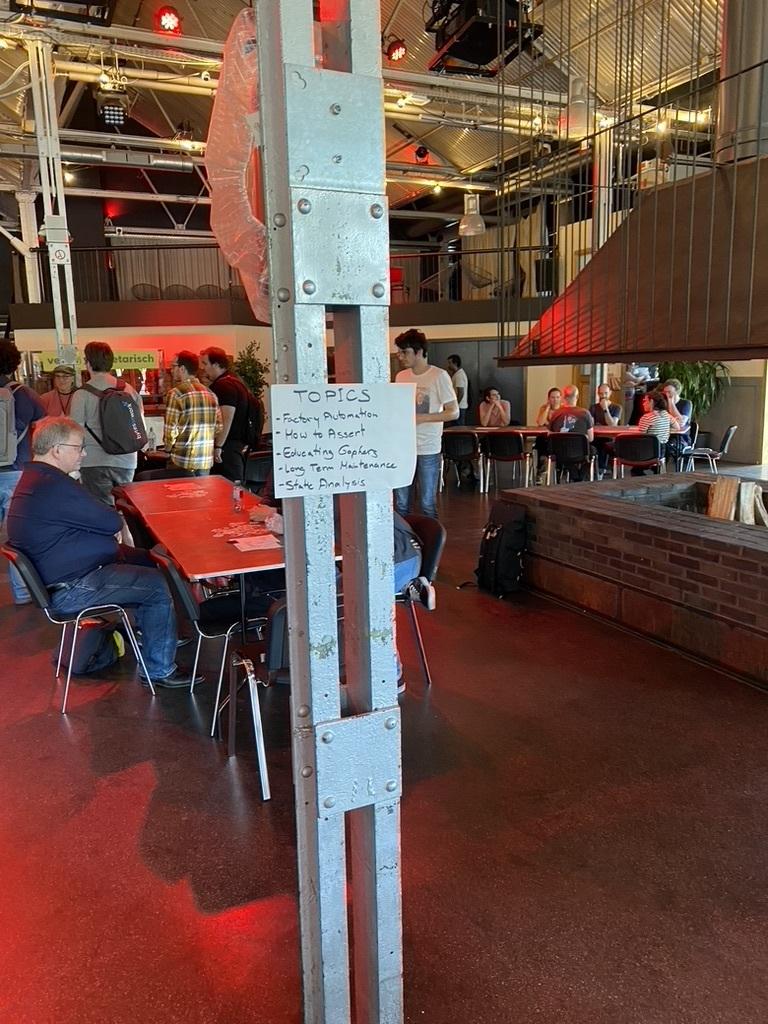
Round table discussions are a nice way to divide people into smaller groups, by personal preference, where one can interact with like-minded people. It’s also a nice way to share implementation thoughts between new people and projects.
Already after the first day, I felt a drag to pull out my computer and refactor all my old tests, with the new superpowers I’d gained from talking about testing for 3 hours.
Workshops & Hacker session 💻
The second day was intended for workshops and a hacking session. During the hacking session, the participants were handed out kits of different sensors, drones, robots etc. which they could freely program to do whatever came to mind. The workshops were targeted more towards people who just have started learning Go or wanted to get into writing micro-services using Go.
I participated in the IoT hacking session, which might not come as a surprise looking at my history in electronics. Of course when you get to choose whatever you want, one makes LEDs blink.

Ron Evans has together with the Go community created TinyGo, a framework to compile go code for IoT devices. The hacking session was mainly focused on getting familiar with TinyGo.
The most memorable talks 🗣
During the third and fourth days, there were a total of 14 talks, a few lightning talks (shorter talks), a panel with the Go development team from Google and even a live podcast recording, on stage. The talks were presented by the famous (in the go community) Mat Ryer together with a Co-MC throughout the final two days. Overall the talks held were great and covered a wide range of different topics including how to write CLI tools, a ranking tool made for Reddit and how to perform memory profiling in your Go program.
But there was one talk that stood out more than the others and it was about the new features of the upcoming (already released) Go 1.19’s changes to the garbage collector and how one could tweak the parameters when building a binary to optimise the memory use of a go program. With Go 1.19 you can now set a threshold on how much memory a binary is allowed to use, and the garage collector handles the rest. This new feature works surprisingly well and can save you a lot of money if you run thousands of microservices for example in a cloud provider.
During the evening you could mingle with other participants and of course, enjoy a few cold ones in the venue’s Biergarten.
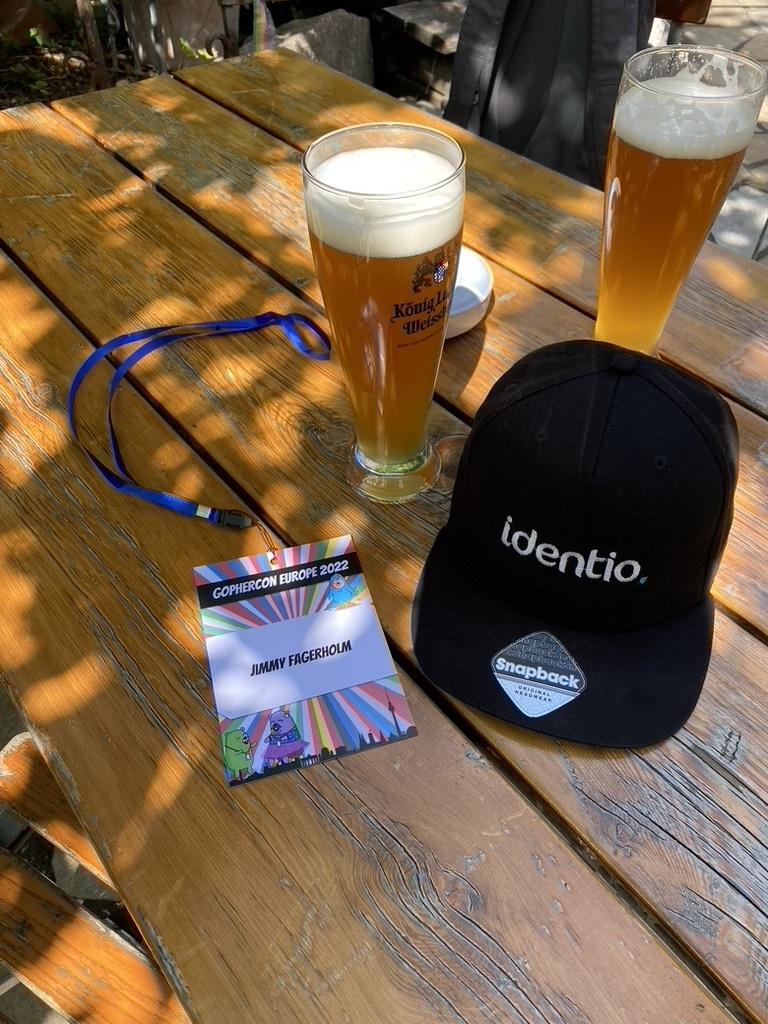
One of my most memorable moments was when I was casually chatting with members of the core Go team over a breakfast sandwich, about how the compiler has evolved during the last few years.
A Short Summary 🔖
The conference was great, well organised with something for everyone and with a lot of nice people to chat with. To me the best part was probably the networking in-between talks and at the evening events, boding with local people and listening to how different cultures do tech. It was also nice to listen to the different talks and get some insights on how Google has been using Go and perhaps where Go is heading in the future.
The talks were easy to follow and had just enough information to keep you interested but not overwhelm you.If you are interested in Go or want to have a look at the different talks held at this year’s Gophercon EU, head over to their YouTube channel where each talk has been recorded and uploaded.
Some other useful links:
Go: https://go.dev/
TinyGo: https://tinygo.org
